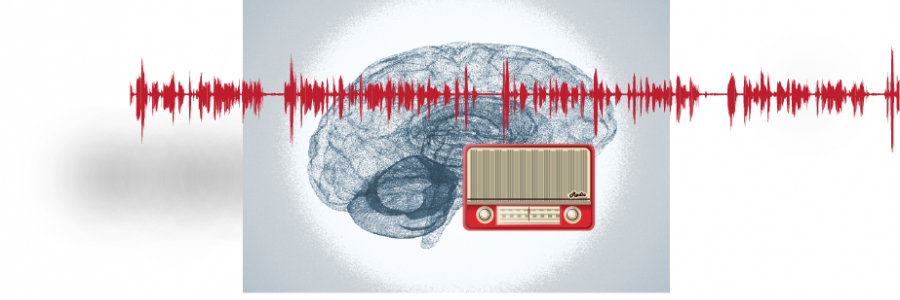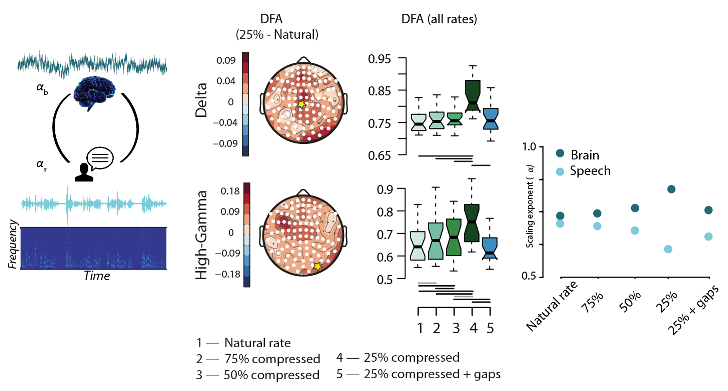
Filipa Teixeira Borges publishes her findings in Journal of Neuroscience
A study by Filipa Teixeira Borges, Huib Mansvelder and Klaus Linkenkaer-Hansen (CNCR–INF) in collaboration with Prof. Anne-Lise Giraud from University of Geneva reveals how sensory uptake constrains the long-range temporal correlations of ongoing neuronal oscillations.
The work, described in a paper published this month in the Journal of Neuroscience, emphasizes how investigating the brain’s dynamical properties is relevant to understand how we process stimuli of ecological relevance. The authors used time-compressed speech in the form of radio news accelerated at multiple rates to probe with the help of magnetoencephalography, the neural underpinnings of the human limitation to comprehend fast speech. On average, humans understand speech that does not exceed three times the natural rate but lose track of meaning at higher rates. “Our study shows an interesting dissociation in how accelerating speech differentially impacts the scale-free properties of low- and high-frequency oscillations. Whereas the strength of long-range temporal correlations in delta- and theta-frequency bands merely increased when speech comprehension deteriorated, this index of oscillatory complexity gradually increased with the speed of speech in high-frequency gamma activity”–explains the senior author, Dr. Klaus Linkenkaer-Hansen. The scale-free dynamics in the delta and theta activity was also associated with the comprehension level reported by the participants in the most compressed speech condition.
Moreover, scale-free dynamics has also long been recognized as a property of speech itself. “It is perhaps surprising that no one explored how this feature may subserve speech’s ultimate goal: communication,” remarks Filipa, the lead author. It was remarkable to observe that only at the rate where comprehension declined the temporal modulations in the speech had correlation properties that mismatched those of neural dynamics,” she continues.
We hope this study fosters translational research using scale-free brain dynamics as a proxy of neuroplasticity during high-demand stimuli processing in healthy brains but also during rehabilitation of, e.g., aphasia, a leading cause of long-term disability.
Find out more in:
Teixeira Borges AF, Giraud AL, Mansvelder HD, Linkenkaer-Hansen K. Scale-free dynamics of neuronal oscillations tracks comprehension of accelerated speech. Journal of Neuroscience 710–722. https://doi.org/10.1523/JNEUROSCI.1515-17.2017
